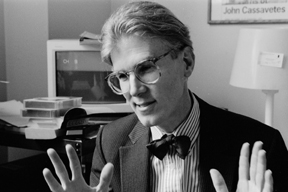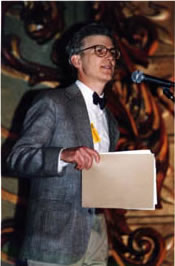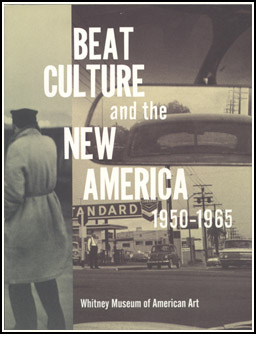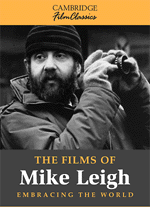|
Introduction
and Page 1 /
2 /
3 /
4 /
5 /
6 /
7 /
8 /
9 /
10 /
11 /
12 /
13 /
14 /
15 /
16 /
17 /
18 /
19 /
20 /
21 /
22 /
23 /
24 /
25 /
26 /
27 /
28 /
29 /
30 /
31 /
32 /
33 /
34 /
35 /
36 /
37 /
38 /
39 /
40 /
41 /
42 /
43 /
44 /
45 /
46 /
47 /
48 /
49 /
50 /
51 /
52 /
53 /
54 /
55 /
56 /
57 /
58 /
59 /
60 /
61 /
62 /
63 /
64 /
65 /
66 /
67 /
68 /
69 /
70 /
71 /
72 /
73 /
74 /
75 /
76 /
77 /
78 /
79 /
80 /
81 /
82 /
83 /
84 /
85 /
86 /
87 /
88 /
89 /
90 /
91 /
92 /
93 /
94 /
95 /
96 /
97 /
98 /
99 /
100 /
101 /
102 /
103 /
104 /
105 /
106 /
107 /
108 /
109 /
110 /
111 /
112 /
113 /
114 /
115 /
116 /
117 /
118 /
119 /
120 /
121 /
122
72
< Page 73 < 74
Ray Carney's Mailbag -- This section of the site contains letters written to Prof. Carney by students and artists, announcements of news, events, and screenings, and miscellaneous observations about life and art by Ray Carney. Letters and notices submitted by readers are in black. Prof. Carney's responses, observations, and recommendations are in blue. Note that Prof. Carney receives many more letters and announcements than he can possibly include on the site. The material on these pages has been selected as being that which will be the most interesting, inspiring, useful, or informative to site readers. Click on the first page (via the links at the top or bottom of the page)
to read an explanation of this material, why it is being posted, and how this relatively small selection was made from among the tens of thousands of messages Prof. Carney has received.
Click
here for best printing of text
Subject: Former student of Jay Rosenblatt and JP Gorin
Professor Carney,
As in my subject line, I was Jay Rosenblatt's student here in the Bay Area in my beginning years of college. I've been a reader of your site for some time and was delighted to see my old teacher being championed by you. The shot of the young boy throwing the punch in "The Smell of Burning Ants" has resonated throughout the years for me since my viewing back in 2001. I don't know why it has taken me this long for me to actually purchase one of your books (actually that's a lie, I do, I was in Japan the past couple years when I first came across your writings) But I'm back in the states now and am extremely looking forward to being challenged and struggling with your writing in Cassavetes on Cassavetes which I just placed an order for.
I did catch Rob Nilsson's "Carved out of Pavement" screening at the SF International Film Festival this past month, and very much enjoyed the environment that Rob created at the screening, which as unorthodox and specific to his character(I assume), was more of an open dialogue with the entire viewers in attendance. A disappointing experience at the SFIFF that I feel I should mention was the screening of the documentary "Fog City Mavericks." It was what many would call a "star studded affair," with George Lucas, Robin Williams, Chris Colombus (whom I figured out that night was the director of such cinematic gems, as Home Alone) and a slew of others in attendance. I went with the curiosity of learning about the history of what my hometown San Francisco has had in the cinematic world. It was ironic and tragic that the documentary proclaimed that there was something special about the going against the grain attitude of San Francisco (which is true) but went on to explain how it drew the so-called artists and was the breeding ground for the Star Wars Empire and the Pixar animation monopoly. The documentary spending close to 2 hours focusing primarily on George Lucas and Francis Ford Coppola, had enough decency to mention Rob for a whole 30 seconds or so (at which point I applauded loudly along with about 20 or so pair of hands in a theater of a thousand). I realize now that this is how history is actually written. very much enjoyed the environment that Rob created at the screening, which as unorthodox and specific to his character(I assume), was more of an open dialogue with the entire viewers in attendance. A disappointing experience at the SFIFF that I feel I should mention was the screening of the documentary "Fog City Mavericks." It was what many would call a "star studded affair," with George Lucas, Robin Williams, Chris Colombus (whom I figured out that night was the director of such cinematic gems, as Home Alone) and a slew of others in attendance. I went with the curiosity of learning about the history of what my hometown San Francisco has had in the cinematic world. It was ironic and tragic that the documentary proclaimed that there was something special about the going against the grain attitude of San Francisco (which is true) but went on to explain how it drew the so-called artists and was the breeding ground for the Star Wars Empire and the Pixar animation monopoly. The documentary spending close to 2 hours focusing primarily on George Lucas and Francis Ford Coppola, had enough decency to mention Rob for a whole 30 seconds or so (at which point I applauded loudly along with about 20 or so pair of hands in a theater of a thousand). I realize now that this is how history is actually written.
My apologies for the random rants, I was only planning on sending a short note explaining my excitement to receive your book, something I've been looking forward to for quite some time. I've never asked for an inscription in a book, but I feel something(anything) handwritten from you would have some kind of a positive metaphysical effect, after the last couple years of reading material electronically accessed from overseas. I look forward to the reading and hope things are going well for you on the opposite coast.
Best,
Gen Ito
PS: Where can I get a hold of the Japanese edition of your books? I would love to spread the word to my friends in Japan.
Dear Gen (Please forgive me if that's not your first name; I'm so clueless about foreign names and appellation protocol!),
Love the story about how the whole indie movement culminated in George Lucas's work! Yep, that's how history is written. By the victors I mean. Who's going to argue with George Lucas? I was once part of a TV series done for PBS where the history of the American independent movement allegedly culminated with the work of Woody Allen and the Coen Brothers. Then students (the uncritical ones at least) swallow the whole poison pill.
I'm glad to know you are able to think for yourself. My generation (us old guys!) had the counter-cultural "never trust anyone over 30" lessons of the 1960s and 1970s drummed into us, but this generation seems actually to buy into most of what they hear on TV or read in a textbook, rather than wanting to question it. It's the end of the spring term, and I've been thinking a lot recently about the passivity of  most of the students I have with respect to the knowledge that is being given to them. What has puzzled me is that they don't QUESTION it, they don't STRUGGLE WITH AND AGAINST it; they don't seem to be energized to FIGHT AND RESIST AND RE-INTERPRET the intellectual and artistic work they encounter. (Except maybe to ask if it is "politically correct" or "might offend someone.") They merely "learn" what they are told and don't question it. They take notes; they study; they memorize; and they regurgitate what they have been fed through the media and the school system. Maybe I'm just getting old, but it's such a PASSIVE, ACCEPTING attitude that I can hardly understand it. What's the point of being alive, if you are not going to change anything, affect anything, move beyond the old ways of knowing--which we know are not adequate? After thinking about what is going on, I suddenly realized how different their attitude was from that of my generation. These students DON'T WANT to change anything, improve anything. They worship their parents and families, and, when all is said and done, simply want to get a good job and make a lot of money and fit into the system and raise their own family and buy a good car and take a lot of expensive vacations at the end of the process. My generation wanted to blow up the system and change everything. I went up to one of my better (but still, to my mind. overly passive and accepting) students the other day and said: "But don't you want to CHANGE THE WORLD?!!!" And he looked at me like he didn't understand the concept. I guess that pretty much sums up the difference between us. He can read all this stuff about climate change and the war in Iraq and corruption in the White House and the Attorney General's office and in corporate America, and just (somehow, someway--I still can't fathom it) ACCEPT IT. Accept it. (And, of course, not see that there is just as much intellectual corruption, compromise, and support for the status quo in the university system as there is everywhere else.) It's so weird. He's content to leave the world just where it is, doing the things it does, in the hands of millionaire businessmen and media giants -- George Lucas, Steven Spielberg, Robin Williams, Chris Columbus, Bill Gates, Warren Buffett, Rupert Murdoch, and all the rest. And we know THEY are not going to change anything that will negatively affect their welfare. They are not going to make trouble. They are not going to do anything controversial or different from the pack. They are not going to critique the system. The system is fine with them. Why would they see any problems with it? It's made them millionaires, for gosh sakes. most of the students I have with respect to the knowledge that is being given to them. What has puzzled me is that they don't QUESTION it, they don't STRUGGLE WITH AND AGAINST it; they don't seem to be energized to FIGHT AND RESIST AND RE-INTERPRET the intellectual and artistic work they encounter. (Except maybe to ask if it is "politically correct" or "might offend someone.") They merely "learn" what they are told and don't question it. They take notes; they study; they memorize; and they regurgitate what they have been fed through the media and the school system. Maybe I'm just getting old, but it's such a PASSIVE, ACCEPTING attitude that I can hardly understand it. What's the point of being alive, if you are not going to change anything, affect anything, move beyond the old ways of knowing--which we know are not adequate? After thinking about what is going on, I suddenly realized how different their attitude was from that of my generation. These students DON'T WANT to change anything, improve anything. They worship their parents and families, and, when all is said and done, simply want to get a good job and make a lot of money and fit into the system and raise their own family and buy a good car and take a lot of expensive vacations at the end of the process. My generation wanted to blow up the system and change everything. I went up to one of my better (but still, to my mind. overly passive and accepting) students the other day and said: "But don't you want to CHANGE THE WORLD?!!!" And he looked at me like he didn't understand the concept. I guess that pretty much sums up the difference between us. He can read all this stuff about climate change and the war in Iraq and corruption in the White House and the Attorney General's office and in corporate America, and just (somehow, someway--I still can't fathom it) ACCEPT IT. Accept it. (And, of course, not see that there is just as much intellectual corruption, compromise, and support for the status quo in the university system as there is everywhere else.) It's so weird. He's content to leave the world just where it is, doing the things it does, in the hands of millionaire businessmen and media giants -- George Lucas, Steven Spielberg, Robin Williams, Chris Columbus, Bill Gates, Warren Buffett, Rupert Murdoch, and all the rest. And we know THEY are not going to change anything that will negatively affect their welfare. They are not going to make trouble. They are not going to do anything controversial or different from the pack. They are not going to critique the system. The system is fine with them. Why would they see any problems with it? It's made them millionaires, for gosh sakes.
Wow. Or sorry. I got a little carried away, I guess. Talk about "random rants." Mine outdid yours! Glad to put my  John Hancock on anything you buy. My honor. Hi to Jay and Jennifer and Rob and all the S.F. good guys. Keep making trouble. Keep clapping in the "wrong places," and do something else also: DARE TO BOO AND HISS AND JEER folks like George Lucas and Steven Spielberg. They've sold their souls to the double devils of money and marketing. They and their work and everything else they have done have totally SUPPORTED AND ENDORSED the America-first macho-militarist views of life that has gotten us into Iraq and supported political malfeasance in the Middle East. They and their work have FOSTERED AND ENDORSED the me-first, selfish, self-centered, fiercely individualistic, ruthlessly competitive, profit-obsessed, Faustian impulses that are destroying the environment and creating global warming. They and their work have SILENTLY COOPERATED WITH the horrors of American foreign policy to disenfranchise the Palestinians and prop up the maliciousness of the Israeli government and its highly paid American lobbyists. That's what Schindler's List is really about. That's what Star Wars is really about. John Hancock on anything you buy. My honor. Hi to Jay and Jennifer and Rob and all the S.F. good guys. Keep making trouble. Keep clapping in the "wrong places," and do something else also: DARE TO BOO AND HISS AND JEER folks like George Lucas and Steven Spielberg. They've sold their souls to the double devils of money and marketing. They and their work and everything else they have done have totally SUPPORTED AND ENDORSED the America-first macho-militarist views of life that has gotten us into Iraq and supported political malfeasance in the Middle East. They and their work have FOSTERED AND ENDORSED the me-first, selfish, self-centered, fiercely individualistic, ruthlessly competitive, profit-obsessed, Faustian impulses that are destroying the environment and creating global warming. They and their work have SILENTLY COOPERATED WITH the horrors of American foreign policy to disenfranchise the Palestinians and prop up the maliciousness of the Israeli government and its highly paid American lobbyists. That's what Schindler's List is really about. That's what Star Wars is really about.
How have Lucas and Spielberg used their immense cultural power? When did their work do ANYTHING to critique and change the culture of death and conquest and militarism we live in? When did you ever hear Spielberg or Lucas make a single controversial, daring, or courageous political statement--in their work or outside of it? When did they ever give one speech that ruffled feathers? Make one film that critiqued American foreign policy? They have done worse than wasted their lives; they have made careers as collaborators. Intellectual, ideological collaborators with the powers-that-be, with the way things continue to be done. There is a lot of blood on their hands. Getting booed in public is the least that should happen to them.
Rant squared and cubed. Rant met, doubled, and redoubled. Rant raved; rant renewed; rant ranted rantingly. Yours in ranting. But not random.
Ray
PS. No idea about who in the US (or Japan) would have the Japanese editions of my books. I just writes 'em; I have no idea who sells 'em! My ten cents a copy is the totality of my involvement.
Gen Ito repied:
Hi Ray,
Rant much appreciated, the content, of course, but especially the energy in it! I agree with you and am a bit ashamed of myself and my generation (I'm 25) with the passivity of our attitude (or perhaps the lack of having an ATTITUDE) towards the socio-political issues that confront us. I think this past year or two has been a really eye (mind) opener for me, perhaps becoming this age and living abroad and interacting/arguing/learning from people from other parts of the world. I think up until finishing college, I didn't really understand the concept of people growing up in a different generation with differing values and perspectives. The past couple years, seeing that there is a younger generation than mine and noticing how the media and marketing departments really manipulate/brainwash the youth, coupled with the realization of how the class system in the US functions, I am feeling the urgency to become more aware and engaged with the counter-current to the system. It's also been educational and disapointing making friends from other parts of the world. Seeing how others view and judge Americans, the Bush administration has done quite a job on making it uneasy for us to travel with an American passport. I didn't know whether to laugh or cry when one of my best friends(an Australian) I made while in Japan was leaving to go back to Australia said, "I really hope you can make it out to Australia some day, cause I sure ain't going to the states to see you!" Yea, zero interest in stepping onto American soil. My answer? "How sad, but I don't blame ya!" Tragic, when you think how the last parting words between friends might have been different if there was a credible person leading your country.
Just wanted to let you know that reading your words on your site from across the globe were at times the driving force and the root of the (dis)agreements and arguments I had in conversations with friends in Japan; and I thank you for that. I think that's how I became so close to some of my friends, being able to disagree but respecting each other's opinions and learning from one another, broadening each other's perspectives. I'm sure there are plenty more people like me, lurking your site, reading your books, getting inspired to confront the uncomfortable topics, to clap at the "wrong" places, searching for and supporting the suppressed voices. Thank you for being unapologetic in your ways, we can't have enough voices like your own.
-Gen "had an easy time filling in the bubbles for my first (Gen) and last name on the SAT's" Ito
PS: I'll find the Japanese editions, I'm set on spreading your words!
PPS: Perhaps you're already aware of these and I'm sure you're already backed up on your must see viewing list, but here are some films that have left an impression on me lately:
Korea:
"Oasis" (2002) Chang dong Lee
"Woman on the Beach" (2006) Sang-soo Hong
China:
"Seventeen Years" (1999) Yuan Zhang
Japan:
"Nobody Knows" (2004) Koreeda Hirokazu
"Maborosi" (1995) Koreeda Hirokazu
RC reples:
Subject: they are free and make free
Gen,
 I wish my Chairman and colleagues agreed with you! It's one thing to praise my site for "telling the truth,"but the hard facts are that for the last three annual evaluation periods, my pay has been negatively affected by the contents on the site.My Chairman has tried to remove or censor certain parts of it, and has retaliated with low ratings when I've not played along with his demands. That's the reality of corporate America. For filmmakers and for critics. What's the D.H. Lawrence quote? Goes something like: "America is the freest place on the globe, and say something Americans don't agree with, and watch how free they are to lynch you." That allusion may date his reference to the 1930s but (even though I'm as far as you can get from being a Don Imus supporter), Don Imus may have something to replace the lynching reference with. I wish my Chairman and colleagues agreed with you! It's one thing to praise my site for "telling the truth,"but the hard facts are that for the last three annual evaluation periods, my pay has been negatively affected by the contents on the site.My Chairman has tried to remove or censor certain parts of it, and has retaliated with low ratings when I've not played along with his demands. That's the reality of corporate America. For filmmakers and for critics. What's the D.H. Lawrence quote? Goes something like: "America is the freest place on the globe, and say something Americans don't agree with, and watch how free they are to lynch you." That allusion may date his reference to the 1930s but (even though I'm as far as you can get from being a Don Imus supporter), Don Imus may have something to replace the lynching reference with.
As you say, it's a culture of passivity and acquiescence and mind-control. Capitalism thrives on creating states of distraction and offering people material substitutes for their missing ontological freedom. If they can keep you thinking about how big the next car you buy should be, and where you should go on your next vacation, and how many new songs you should download for your iPod, and keep you watching Youtube and surfing MySpace, you won't have time to think about what your tax dollars are paying for in the Middle East and how low the pay is of the peasant woman with six children who glues your Nikes together.
Thanks for the viewing suggestions. Artists are the freest people in the world. Maybe the last free ones -- since to be free imaginatively is the only real freedom, since spiritual independence is the only independence that matters. As Emerson says in "The Poet," "they are free and make free." Thank God art still offers an imaginative opening out of the world of what-is. That's why all real art won't be made part of the marketing and merchandizing system.
Ray
Prof. C,
Please allow me a quick response to your rant in response to Gen Ito. (See the letters and replies above on this page.) The student you describe is BRAINWASHED, don't you get it? He has become the perfect consumer, the mindless, unquestioning child of a capitalistic, free-market society (democratic ideals are dead). He is programmed by a zillion messages a day to buy things he doesn't need because he's told they're cool. Or because they're coupled with sex (just about any TV commercial today does this, they don't even make an attempt to make the ad about the product). To reflexively respond when his buttons are pushed.
Back to the old pendulum theory. There will be no counterreaction until the pendulum has swung as far as it can go. This generation hasn't known any real hardship, their lives are full of all of the luxury things life (and credit) can afford them. (With things as bad as they are, I can't imagine how much worse things would have to become for people to stand up and fight en masse.) They're either brainwashed (so won't even think of resisting), or not mad-as-hell-I'm-not-going-to-take-it-anymore yet. As my old sociology prof used to say, there are only two kinds of revolution. With blood, or with the ballot box. Unfortunately, the ballot boxes are completely corrupted, controlled and comprised... As long as the consumer society can keep the people brainwashed (and entertained!), there's not a problem. I don't think the younger generation sees the problem, or at least that it's life-threatening. The only way blood will spill in this country to overthrow the status quo is when people perceive it's life or death. They must perceive the threat.
Just my thoughts.
Jennifer Wright
RC replies:
I once (a few years back), in response to a mother's letter to me about her fears of her son being sent to Iraq and her expression of gratitude that at least "there was no draft," told her that she was short-sighted and selfish. I told her that if she sincerely desired peace, she should be campaigning to restore the draft, to force tens of thousands of college-age students to live in fear of losing their lives in a Middle Eastern desert. I know she didn't appreciate my response, but my point was the same as the one you are making: We live in a system where the killers are insulated from the sight of their own killing, where the bombs are dropped from thirty thousand feet (imaginatively, I mean), where our tax dollars finance murderers on foreign sands, but we, the individuals whose votes ratify and paychecks bankroll these actions, never have to see the consequences, where the soccer moms with the yellow "support the troops" ribbons on their vans don't have to deal with the political implications of their feel-good sentiments, where even the politicians who vote for the war appropriations are more interested in their TV ratings than in the consequences of their votes. It's why I often inscribe books I send to young artists: "Work for truth in our culture of unreality." There is a lot of unreality out there. And darn little reality. -- Ray Carney
Subject: Concerning cassavetes.com
Dear Professor Carney,
After reading this part of your reply to Gen Ito - "I wish my Chairman and colleagues agreed with you! It's one thing to praise my site for "telling the truth," but the hard facts are that for the last three annual evaluation periods, my pay has been negatively affected by the contents on the site. My Chairman has tried to remove or censor certain parts of it, and has retaliated with low ratings when I've not played along with his demands." - I felt obliged to offer you, whenever and if ever you need it, hosting for your entire site, at no cost to you. I check it every day; it's the most valuable piece of Internet I've been lucky enough to find. The thought that a voice as essential as yours could be muzzled by these people... well, I just wouldn't want it to ever happen. If only as a backup/archive that they could never touch, please consider my offer. It would be an honor.
Also, since January I've become acquainted with a former student of yours, Eric Sazer... he is a remarkable person, and our meeting in this world was due entirely to our both being fans of your work. I thank you for somehow bringing us together.
Keep awake, teacher, for as long as you can
jason
Ray Carney replies:
Jason,
Thanks for the kind thoughts and generous offer. And I agree with you that Eric is a great guy and a hard-working, good artist too!
Work for change! And never compromise on a matter of principle!
Ray Carney
Subject: Donal Foreman recommends ...
A documentary called "Century of the Self" by Adam Curtis
- which looks at how Freud's ideas of desires and the subconscious were adopted by American business, so that advertising became about tapping into your desires and insecurities rather than telling you about the product they were selling - and how this was eventually adopted by American and British politics.
You can watch it on archive.org (or download it from a torrent site).
J.P. Carpio
"Much have I travelled in the realms of gold" category (a note from Ray Carney): Friends whose judgment I trust have recommended the films of Turkish director Nuri Bilge Ceylan to me. Ceylan has only made four feature films at this point in his career: The Small Town in 1997; Clouds of May in 1999; Distant in 2003; and Climates in 2006. In 1995, he also made a short titled Cocoon (Koza). Several of my contacts have told me the most recent film, Climates, is as good as Tarkovsky or Antonioni. Yes. That good. He's obviously worth watching. Keep an eye out for Ceylan's work in the programming schedules at museums or archives in your area, and let me know what you think, particularly if you are able to catch Climates. (To read more about Ceylan's films on the Harvard Film Archive web site, click here.) -- R.C.
Dear Ray Carney,
I have not observed any letters in your website authored by those pursuing postdoctoral research-from which I can only deduce that you do not use the website to advise PhDs on their academic pursuits. I can only guess that others have approached you and that there is small chance of your reading my proposal. In any case, I am writing to you because you may be the only person who can help me. I should tell you first off that I loved your review of The Johns Hopkins Guide to Literary Theory and Criticism, that it really struck a chord and reminded me of what I find problematic in (other areas of critical) discourse. (Click here to read that review.)
I recently passed my PhD examination in Australia... Extending my dissertation and abiding interest in ethics and visuality, I'm currently working on a new research topic, surrounding Cassavetes. Specifically, I am interested in the kinds of ethical situations in which Cassavetes' characters render their lives aesthetic productions. I would like to explore this question not only in Cassavetes' films but by way of the German aesthetic tradition (1930s), with which, of course, you have observed Cassavetes' films have an intense affinity. For myself, what makes the work of Cassavetes compelling is precisely the way in which the characters as you once described are made to "improvise," thereby forcing the spectator into his own encounter with the ethical.
 Since I completed my PhD at the end of 2006, I have been looking for postdoc opportunities to pursue my work. I have found there are few fellowships in the humanities, let alone in the area of aesthetic theory and film studies. I did find a fellowship at (a school in another country) who support 1-2-year long research projects of this type. I am waiting to hear a response from the school. Further to pursuing the topic in a series of papers of my own, my proposal included hosting a John Cassavetes film festival as well as a symposium run concurrently ... on the broader topic of Ethics and the Underground Cinema. Since I completed my PhD at the end of 2006, I have been looking for postdoc opportunities to pursue my work. I have found there are few fellowships in the humanities, let alone in the area of aesthetic theory and film studies. I did find a fellowship at (a school in another country) who support 1-2-year long research projects of this type. I am waiting to hear a response from the school. Further to pursuing the topic in a series of papers of my own, my proposal included hosting a John Cassavetes film festival as well as a symposium run concurrently ... on the broader topic of Ethics and the Underground Cinema.
Given the sheer amount of expertise and material you possess on my topic, it is obvious, I would benefit greatly from working under your guidance. However, I have already looked on the Boston University website without seeing anything that might make it possible. Perhaps though if I do go to the Netherlands I could find a small grant to make a trip to meet you for a restricted period. If you have any ideas for me, I would be grateful to hear them. I would very much like to meet you.
I will add one last comment, which is that it is because of you that I discovered John Cassavetes, when you came to Australia for a Cassavetes festival run by an old family friend of mine Richard Raber at the Lumiere cinema in Australia (which has since closed). (The festival opened with May's Mikey and Nicky).
All the best and I would love to hear from you.
Sincerely,
name withheld
Ray Carney replies:
Thanks for your good letter and kind words. I was in Australia as a representative of the U.S. State Department and fondly remember the events and audiences. It was one of the most rewarding trips I have ever taken, and the audiences were incredibly supportive.
To your questions: I have served as a dissertation outside reader for, or advised, many foreign students writing about John Cassavetes and American independent film, at the Ph.D. level. I have also had non-matriculated students from all over the world who are interested in independent filmmakers or specific European art filmmakers whose work I teach (Ozu, Bresson, Tarkovsky, Kiarostami, Renoir, etc.) audit many of my classes. They have included students from Italy, Germany, Japan, France, England, and elsewhere. However, my department (as you may have discovered in your research) does not offer the Ph.D. degree and does not provide any research or financial support for Ph.D. or postgraduate students. In fact, even when students who hold Fulbright, National Endowment for the Humanities, or other prestigious grants have attempted to come and study with me, the university has often made it extremely difficult from them to do so, in terms of the paperwork and documentation and payments they require from the student in order for him or her to obtain research or financial support for their stay (to be able to use the library, to be able to be given on-campus office space, to be allowed to use the copy machine, etc.). I should add parenthetically that, since my department is not research-oriented, as a faculty member, even I am limited in my use of the Xerox machine!--believe it or not: my former Dean forbade me to use it to copy materials for a course, and my current Dean has discouraged me from using it to copy research materials--so the "tightness" of the research support system extends beyond Ph.D. or postdoc students to include the faculty as well. (I have to spend hundreds of dollars a year out of my own pocket just to Xerox things for my courses and my publishing. Boston University, or at least my part of it, just does not support serious research on the part of either faculty or students. Just not geared for that.)
I should also emphasize that I am the only person in my program who focuses on art film in the way I do. The rest of the film studies program is either devoted to more "popular" or "Hollywood" work, or takes a more "sociological," "art historical," or "cultural studies" approach to film (and, based on recent departmental decisions, including the appointment of a new head of the program after I resigned as director a few years ago, will be continuing to move even further in these directions with future faculty appointments and future course offerings).
So, in short, although there is a constant stream of visitors to my classes from around the world, everything I have done in the way of helping them has been "stolen time"--done completely unofficially and without any university sanction, acknowledgement, or credit. So, as much as I may personally support your project, I cannot be encouraging. If you come to the United States, and I am free and available, I would be glad to meet you, and if time allows, have a conversation or two. I wish you success.
Ray Carney
From: "Donal Foreman"
Subject: please check out my short film online
Hi everybody,
A two minute short film of mine called UNDER, is currently playing in the Con-Can Movie Festival (www.con-can.com), a Japanese-run online film festival. The top prize is $10,000 and the finalists are selected based on viewer ratings.
So if you're feeling generous, please log onto the website (you have to register but it only takes a minute), and give my film a generous star rating.... I'd really really appreciate it. And if you can forward this email on to anyone else who might be interested, I'd really appreciate that also...
You can see the film here.
All the best,
---Donal
Ray,
Check out this Variety article when you get the chance:

Who is judging the audience reaction to these films? It seems awfully coincidental that an American trade paper reports positive audience reaction to American films, and middling to negative reactions to foreign films. I know Cannes is more about glitz and glamor than art more often than not, but I know a great deal of people do go there to see some excellent films, and there ARE excellent films and filmmakers in competition this year. Especially of interest in the article: the "audience" reaction to Wong Kar Wai and Hou Hsiou Hsien's new films: "too unambitious to trigger strong feelings"? Is that the audience's reaction or the reporter's? I like how he/she has to admit Wong Kar Wai's film got "a smattering of kind notices, mostly from French supporters." Too unambitious for us Americans, though. What a shame. I think the reporter has it wrong. I think it may be the Americans who are the unambitious ones. But you can't print that in Variety. It's Hollywood's newspaper! Let's hope those "French supporters" are there to give good notes for Bela Tarr, Alexandr Sokurov, Harmony Korine and Gregg Araki later in the festival! They're going to need them! Best,
Darren
RC replies:
Thanks, Darren. Never forget: It's called "show business" for a reason. And, ultimately, especially as far as "the trades" (like Variety) are concerned, the accent always falls on the second word. You're right. Variety is putting down those dumb "French supporters" who like movies that didn't cost two hundred million, don't star big names, and don't have thirty million in Pixar special effects. Now, Pirates of the Caribbean, now that's an ambitious movie! Tarkovsky's Stalker couldn't hold a candle to it in terms of stunts and FX.
Well, that's entertainment. Keep 'em laughing all the way to the end. Nowadays, the Nazi concentration camps would have closed-circuit TV to keep the prisoners content. No barbed wire in our mental prisons. Hollywood is much better at keeping people in their places -- and in their seats. Laugh it up. -- Ray
Subject: Robert Ewart - MA thesis - 'Shadows'
Dear Professor Carney,
Hello. My name is Robert Ewart and I am currently undertaking a Postgraduate course in Film Archiving and Film Studies at the University of East Anglia, Norwich, England. I have been extremely curious about the legacy of John Cassavetes for some time now, subsequently becoming a huge fan of his films. Naturally, my interest in Cassavetes has brought your emphatically important and extensive work on him to my attention. As a film archiving student, I am absolutely determined to incorporate archiving-related elements into my dissertation, in conjunction with film theory. Therefore, I very much wanted my dissertation to involve Cassavetes in some aspect.
From your outstandingly detailed website, and other sources, I have learned of your prolonged complications with the alternate cut of 'Shadows', pertaining to the legal conflicts over the copyright ownership and so on. Despite the negative aftermath of your discovery of the original version of 'Shadows', I strongly believe that case would act as a vital foundation for the overall context of my thesis.
As an overall broad outline, I wish to research film copyright law, concepts of lost or alternate versions of motion pictures, exhibition and public access of these and archiving and conservation issues. Although I thoroughly appreciate that your time is very limited and that you have copious important obligations, I was wondering if I could request a couple of favours that would be irrefutably beneficial to my thesis? Firstly, would I be able to contact you in the near future in order to pose a few questions about the alternate 'Shadows' incident, so as to include your personal account of your experiences with it, coupled with your official opinions on the resulting legal ramifications?
Secondly, is it in anyway possible to view the original version of 'Shadows' in entirety? If not, is it possible to view individual scenes or production stills? Alternatively, if none of the previous are an option, would I be able to take an official, detailed account from yourself as to how the alternate cut differs to that of the second version (which I own on DVD)? Once again, I completely understand your precious time but I really would be grateful for any help that you could offer me.
Many thanks and best wishes.
Robert Ewart
RC replies:
Robert,
Thanks for the kind words. To cut to the chase -- and respond to your two questions:
1) My site has extensive information about the first version of Shadows, including lengthy statements (and interview excerpts) about my view of the legal situation. To find this material, you should go to the "Ray Carney's Discoveries" area. This is accessible through the left blue ticket icon that appears on almost every inner page of the site. Click on it and follow the various links. I'm not sure what else I could add that is not already covered on those pages, but if you have a question or two, feel free to write me and I'll try to give you an answer.
2) Page 60 of the Mailbag (accessible via the blue page number menus at the top and bottom of every Mailbag page) has three video clips from the first version. I also show the print in some of my Boston University classes from time to time. Not every semester or every year, but whenever it fits into a course offering as an appropriate subject of study. I would also be glad to show the print at any event to which I was invited, as long as the event treated the material with the respect, care, and attention it deserves (e.g. presenting screenings of both versions of the film so that audiences can compare them; holding a panel discussion or allowing me to make a presentation about the meaning of the first version and the story behind its discovery; etc. etc.).
All best wishes on your thesis. You should be very careful in your research. There is much false information and bad research about Shadows and Cassavetes out there. An online journal called Senses of Cinema has some especially shabby writing on Shadows and on Cassavetes' work in general.  And the published books by Nicole Brenez and Marshall Fine have scores of serious errors in them. Many quite hilarious. Real howlers. (I'd note that none of these three sources ever asked me for information about either version of the film. In most cases, they relied on incorrect and misleading information provided by Gena Rowlands and Al Ruban, both of whom had minimal involvement with the making of Shadows, and both of whom have deliberately "shaded" the information they provide in order to build their legal case to allow them to seize the film and suppress it.) Your research will be meaningless if you base your conclusions on sources like these -- and others in the media who have axes to grind. But that's what makes research fun! Sorting out the wheat from the chaff, the flaky from the reliable material. I wish you luck! And the published books by Nicole Brenez and Marshall Fine have scores of serious errors in them. Many quite hilarious. Real howlers. (I'd note that none of these three sources ever asked me for information about either version of the film. In most cases, they relied on incorrect and misleading information provided by Gena Rowlands and Al Ruban, both of whom had minimal involvement with the making of Shadows, and both of whom have deliberately "shaded" the information they provide in order to build their legal case to allow them to seize the film and suppress it.) Your research will be meaningless if you base your conclusions on sources like these -- and others in the media who have axes to grind. But that's what makes research fun! Sorting out the wheat from the chaff, the flaky from the reliable material. I wish you luck!
Here's an idea: Why not organize a conference somewhere and I'll come and speak about the film and show it? I'd love to do that. I'd be glad to do it anywhere in the world. (And there is so much to say that people don't know about. And also much in Cassavetes' and Rowlands's lives and relationship to talk about that is not public knowledge, but that can throw important light on the films and their individual roles in creating them.)
Best wishes in your work.
Subject: Bach notes
I love that Bach mention on p. 72. (Go to the bottom of the preceding Mailbag page to read the paragraph being alluded to.)
It's funny, I've lately been reading lots of online blogs, articles, rants, etc. about how screwed up our world is and how this or that is the answer, the solution: activism, lobbying politicians, environmentalism, etc. etc. ad infinitum. And all those things are great, but what these writers don't understand is that BACH HAS THE SOLUTION! It's right there in his music! Can't you hear it?
Have a happy day,
Darren
RC replies:
Thanks for the thought, Darren. Lots of folks would disagree with you, of course. Starting with the folks in the White House, no doubt. Not many people (other than artists) view art as having any real power in our culture. And maybe it doesn't. Maybe the others are right.
The fun of your point, for me, would be arguing it, debating it, making a case for or against it. How would you show that "Bach has the solution?" Not merely assert it, but demonstrate it?  More generally, how could you make a case for the "power" of art? I'd invite you (and other site readers) to weigh in with your opinions: Can art make a difference? Does art ultimately matter in any way -- to the past, present, or future of the world? Or is art just a luxury? A frill? A game played by "elites" for "elites?" W. H. Auden once wrote that "poetry makes nothing happen." And Hilton Kramer argued that "art that is in favor of something, art that proposes we do something is bad art." Kramer says that only fascist and socialist propaganda -- or a Madison Avenue advertising campaign -- attempts to move people to action, tries to persuade them to do something. Real art never does. Is Kramer right? Is that true? Is Auden right? Do you agree with them? To adapt Matthew Arnold's famous essay title: What is the function of art at the present time? Does art have a function? Does art -- does the work of Bach and Rembrandt and Shakespeare and Wordsworth and Henry James and Picasso and Jean Renoir and Robert Bresson and Abbas Kiarostami -- make any real difference to the fate of the planet or the fates of the beings on it? I invite reader responses. I will publish the most interesting. -- R.C. More generally, how could you make a case for the "power" of art? I'd invite you (and other site readers) to weigh in with your opinions: Can art make a difference? Does art ultimately matter in any way -- to the past, present, or future of the world? Or is art just a luxury? A frill? A game played by "elites" for "elites?" W. H. Auden once wrote that "poetry makes nothing happen." And Hilton Kramer argued that "art that is in favor of something, art that proposes we do something is bad art." Kramer says that only fascist and socialist propaganda -- or a Madison Avenue advertising campaign -- attempts to move people to action, tries to persuade them to do something. Real art never does. Is Kramer right? Is that true? Is Auden right? Do you agree with them? To adapt Matthew Arnold's famous essay title: What is the function of art at the present time? Does art have a function? Does art -- does the work of Bach and Rembrandt and Shakespeare and Wordsworth and Henry James and Picasso and Jean Renoir and Robert Bresson and Abbas Kiarostami -- make any real difference to the fate of the planet or the fates of the beings on it? I invite reader responses. I will publish the most interesting. -- R.C.
72
< Page 73 < 74
Introduction
and Page 1 /
2 /
3 /
4 /
5 /
6 /
7 /
8 /
9 /
10 /
11 /
12 /
13 /
14 /
15 /
16 /
17 /
18 /
19 /
20 /
21 /
22 /
23 /
24 /
25 /
26 /
27 /
28 /
29 /
30 /
31 /
32 /
33 /
34 /
35 /
36 /
37 /
38 /
39 /
40 /
41 /
42 /
43 /
44 /
45 /
46 /
47 /
48 /
49 /
50 /
51 /
52 /
53 /
54 /
55 /
56 /
57 /
58 /
59 /
60 /
61 /
62 /
63 /
64 /
65 /
66 /
67 /
68 /
69 /
70 /
71 /
72 /
73 /
74 /
75 /
76 /
77 /
78 /
79 /
80 /
81 /
82 /
83 /
84 /
85 /
86 /
87 /
88 /
89 /
90 /
91 /
92 /
93 /
94 /
95 /
96 /
97 /
98 /
99 /
100 /
101 /
102 /
103 /
104 /
105 /
106 /
107 /
108 /
109 /
110 /
111 /
112 /
113 /
114 /
115 /
116 /
117 /
118 /
119 /
120 /
121 /
122
|










